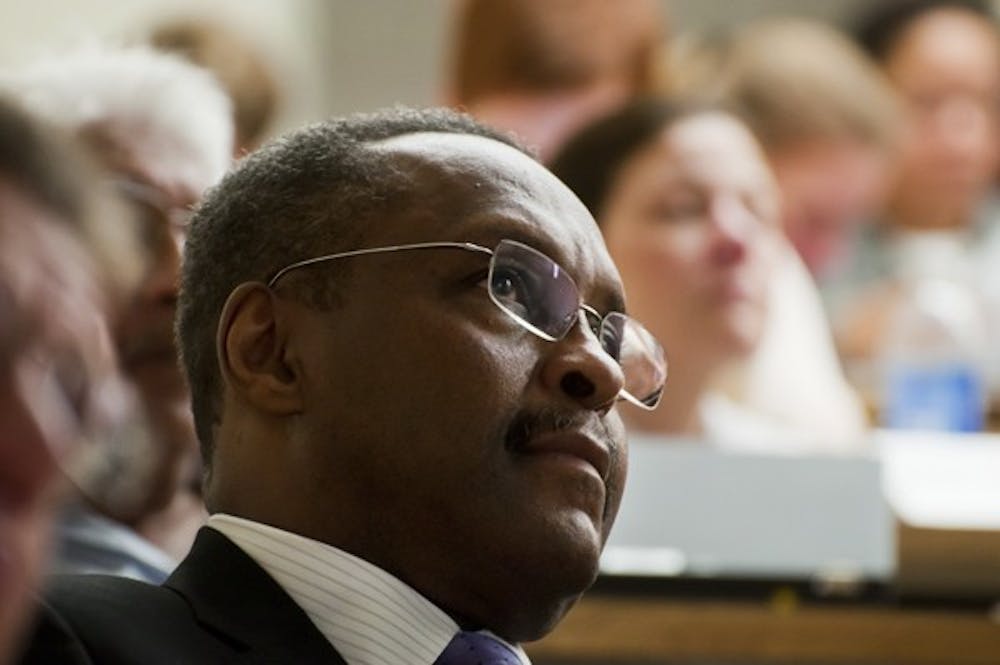Campus leaders react to vote of no confidence against Ross, Shapiro
Some campus leaders hope for more action while others remain neutral following the December vote of no confidence against University President George Ross and Provost Gary Shapiro.
A student-led initiative presented by student Senators Christopher Benison and Michelle Campbell at an Academic Senate meeting on Dec. 7 was passed by a 52-percent majority.
The symbolic motion was met with an immediate response from Central Michigan University, and the board of trustees supported the leadership of Ross and Shapiro.
“The board remains confident in the leadership of Drs. Ross and Shapiro and their commitment to the academic, personal and professional success for our students,” said Sarah Opperman, former chairwoman of the board.
Student Government Association President Vincent Cavataio said the support of the board is a major component when deciding what should be done next.
“Since the board acknowledged their support, I don’t see (the vote) impacting students in any way,” the Shelby Township senior said. “I don’t see anything else being done with this.”
Dean Pybus, graduate coordinator of the Department of Recreation, Parks and Leisure Services, fully supports the vote against the Central Michigan University president and provost.
“I was pleased to hear it was student-initiated,” he said. “I hope there is a faculty and staff-initiated motion to follow.”
Cavataio said that although he saw the motion coming, he disagrees with the vote and does not believe it will solve any of the pressing problems between the faculty and administration.
“I fully expected the motion. When people are that unhappy, you can see something like this coming,” Cavataio said. “However, I don’t believe it was warranted and I don’t see it solving anything now or in the future.”
Pybus said the A-Senate made the right decision based on Ross’ and Shapiro’s actions during the semester.
“Ross, Shapiro and the board of trustees, through their actions, suggest that they value hoarding money for the proposed College of Medicine,” Plybus said. “This has been shown not only in their dealings with faculty, but with other employee groups on campus.”
Cavataio said the attitude of the university as a whole needs to improve before anything can change.
“We’ve taken some huge hits this year,” he said. “The administration, faculty and students will have to work together to improve morale on campus.”
Opperman said after the vote the CMU Board of Trustees and seven academic deans stood behind the president and provost, minimizing any campus-wide support behind the vote.
“I think it’s a small part of the university, from what I see, that is feeling very uncomfortable,” Opperman said in a previously published report. “In 2012, we start with being productive and building trust. Let’s begin to heal as a university.”
The vote is non-binding and does not directly affect the job status of Ross or Shapiro. However, Ross is not the first president to have received a vote of no confidence. In 1991, amidst collective bargaining disagreements, then-President Edward B. Jakubauskas faced a no-confidence vote by the Student Government Association and A-Senate. Two months later, on Nov. 8, 2001, Jakubauskas announced his resignation as president, saying it was not because of the vote or clash with faculty.




